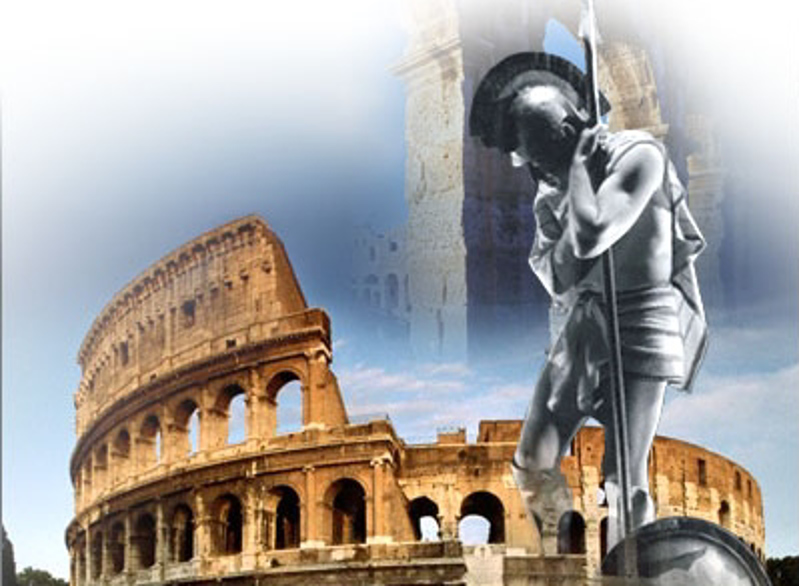My Capstone Vacation
Description of People: Italians are warm, welcoming people who love to relax, celebrate and socialise with family and friends. And celebration and relaxation usually take place around the table either at home or in a restaurant, where they can enjoy the traditions of the Italian cuisine.
Italians have a passion for eating but also for talking. Italians like to socialise outside the home and often meet in bars, restaurants and pizzerias, but gatherings at home are also very much a part of Italian life when Italians gather as a family to celebrate special occasions or just to come together to enjoy a meal on Sunday.
About Italy
Statistics
Description of People: Italians are warm, welcoming people who love to relax, celebrate and socialise with family and friends. And celebration and relaxation usually take place around the table either at home or in a restaurant, where they can enjoy the traditions of the Italian cuisine.
Italians have a passion for eating but also for talking. Italians like to socialise outside the home and often meet in bars, restaurants and pizzerias, but gatherings at home are also very much a part of Italian life when Italians gather as a family to celebrate special occasions or just to come together to enjoy a meal on Sunday.
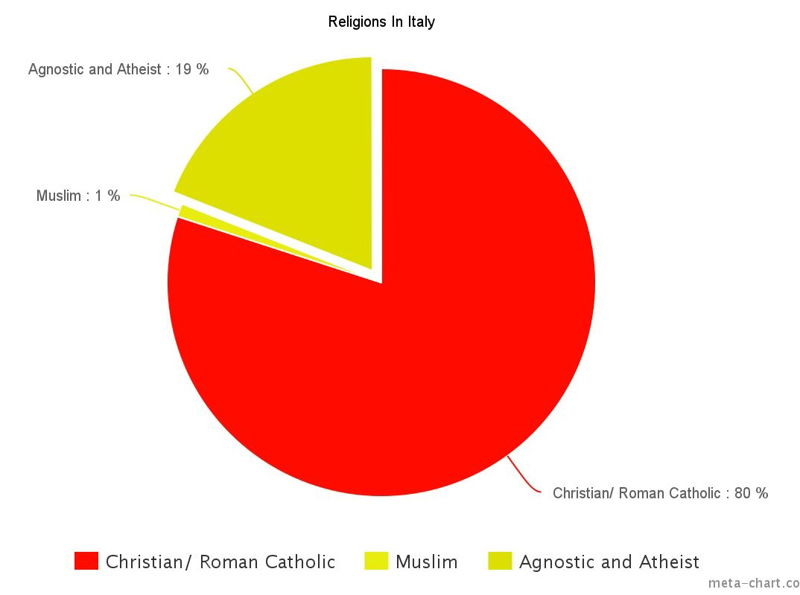
Geography: Italy is a peninsula in the Mediterranean Sea. Its most prominent feature is its boot-like shape kicking the island of Sicily.
Much of Italy is covered by mountains. The Dolomite mountains which extend across northern Italy are part of the Alps mountain range. The Apennine mountains cut down the center of Italy, stretching from north to south, dividing the east and west coasts. Italy includes two large islands: Sicily and Sardinia. Sicily is the largest island in the Mediterranean, with active volcanoes and earthquakes. Sardinia is basically mountains rising out of the ocean.
Italy also has two independent countries within its borders. Vatican City is the center for the Roman Catholic Church, and is the world's smallest country. San Marino, on the north east coast of Italy, is an independent republic.
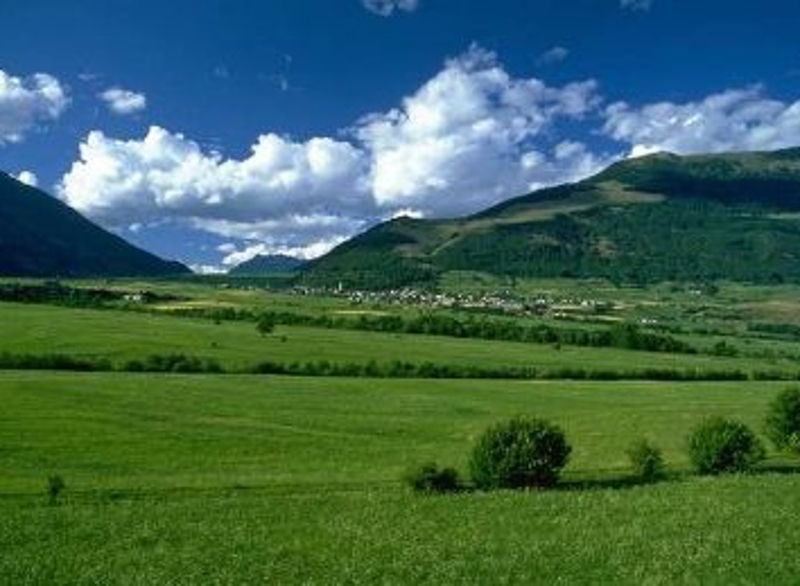
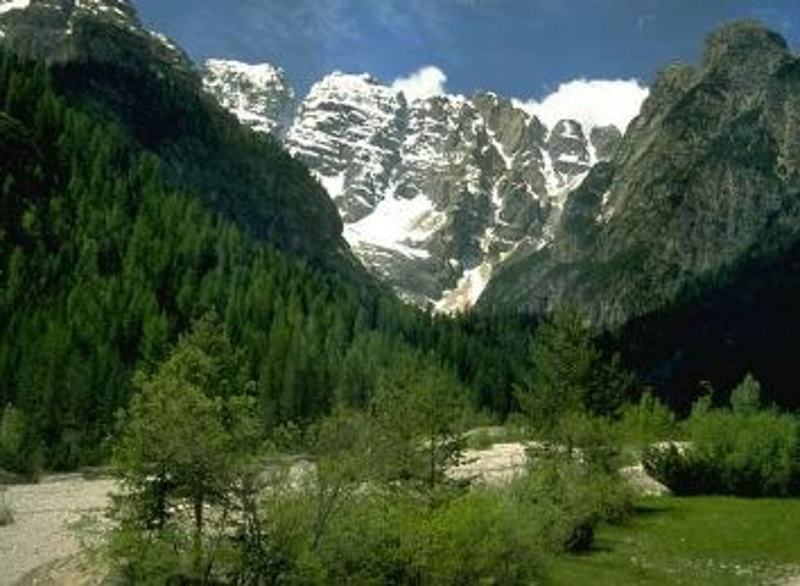
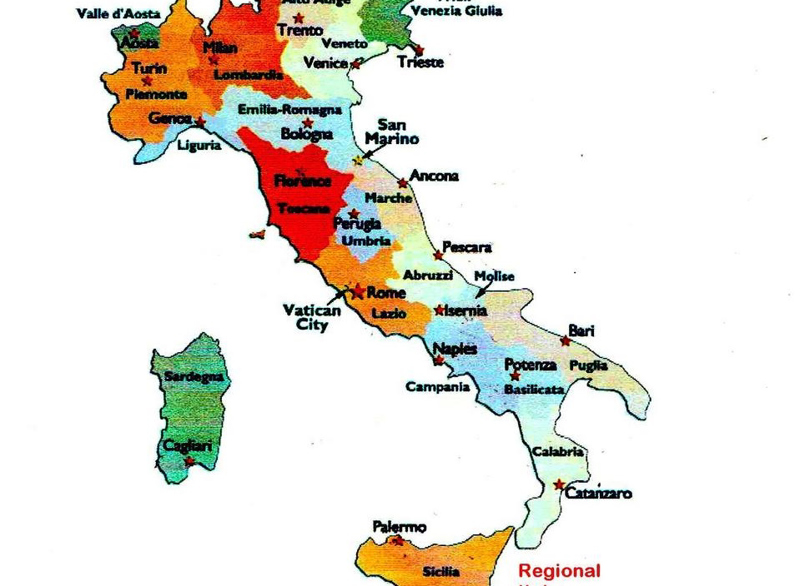
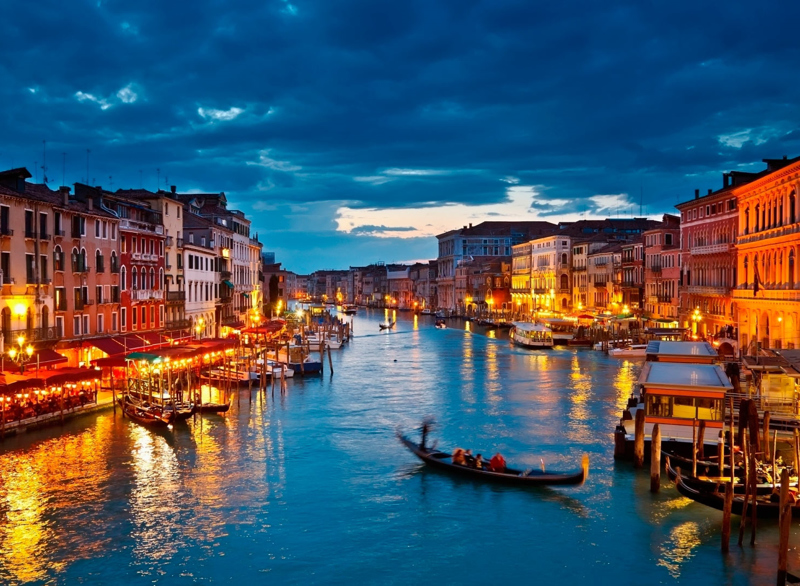
History: From 800 to 600 B.C., Greeks, Etruscans and others settle in Italy. In 753 B.C. Rome is founded. This marks the beginning of the Roman Kingdom. In 509 B.C. the monarchy is overthrown, and Rome becomes a republic. From 46 to 44 B.C., Julius Caesar rules as dictator. In 27 B.C. Augustus becomes the first emperor of the Roman Empire. He is Julius Caesar's grandnephew and adopted son. From 1200 to 1600 A.D. Rome, Florence and Venice prosper during the Renaissance, a period of renewed interest in culture. In 1861, Italy becomes a unified nation under King Victor Emmanuel II. In 1915 Italy entered World War I on the side of the Allies. From 1940 to 1943, Italy sides with Germany and enters World War II. In 1943, dictator Benito Mussolini is forced to resign. In 1946 Italians vote to end the monarchy and make their nation a democratic republic. In 1984 Catholicism is no longer Italy's formal state religion. In 2008 billionaire Silvio Berlusconi returns to power as prime minister. He begins a third term. Lastly, in 2009, the mountainous area of Abruzzo is badly hit by an earthquake. Many people are injured and left homeless.
Current Issues: One problem in Italy is the economy. The country's national debt is 120% of the annual GDP, and their economy is steadily sinking.
